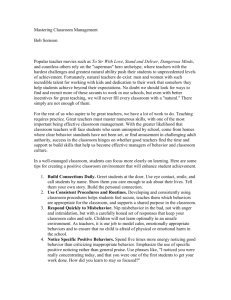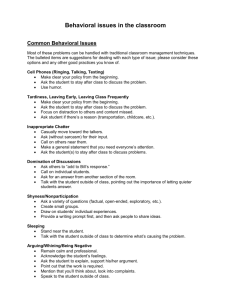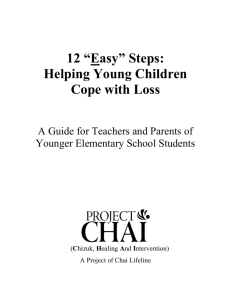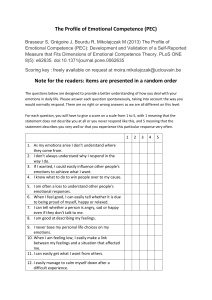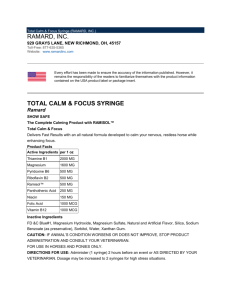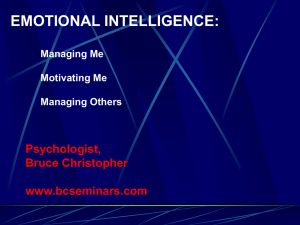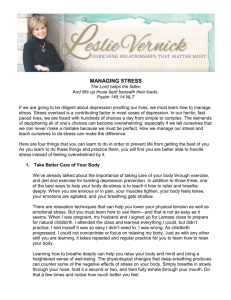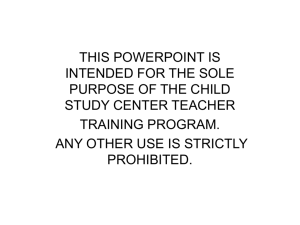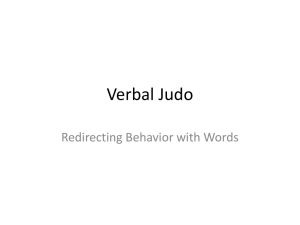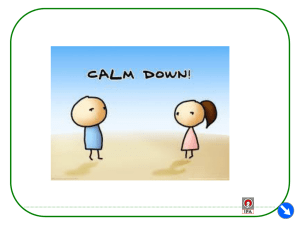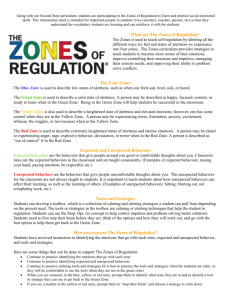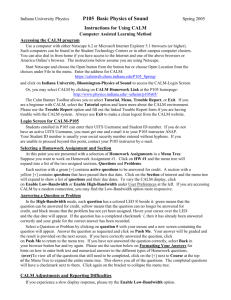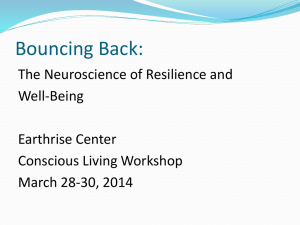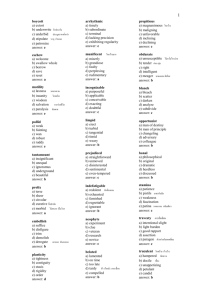How to Handle Emotionally Charged Situations In the
advertisement
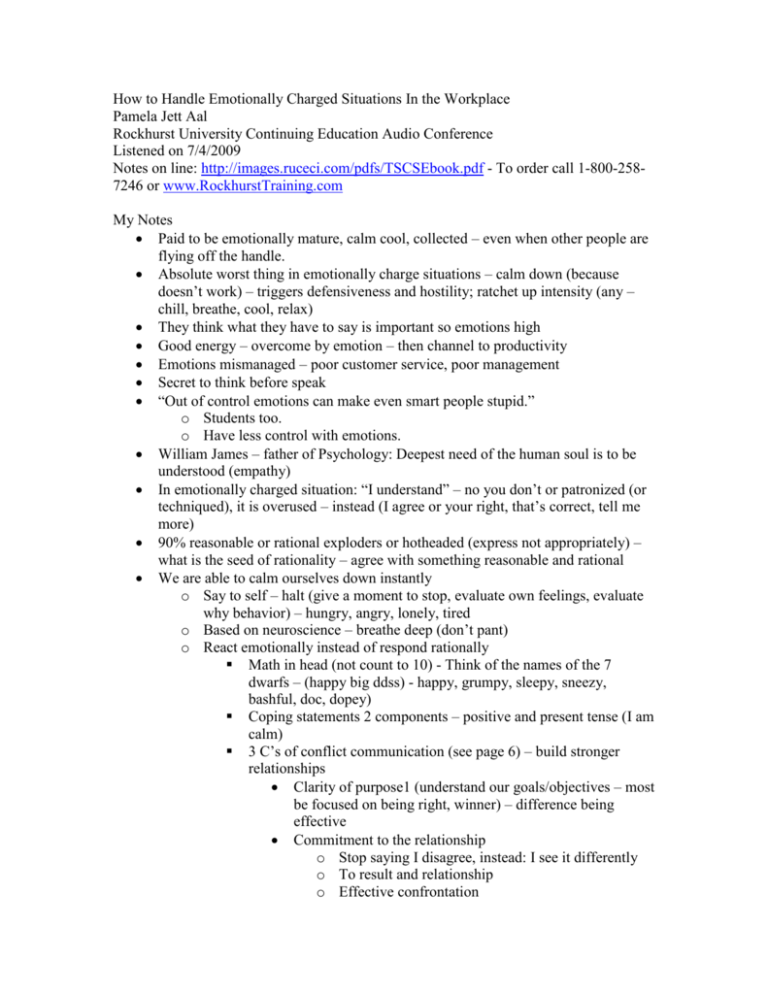
How to Handle Emotionally Charged Situations In the Workplace Pamela Jett Aal Rockhurst University Continuing Education Audio Conference Listened on 7/4/2009 Notes on line: http://images.ruceci.com/pdfs/TSCSEbook.pdf - To order call 1-800-2587246 or www.RockhurstTraining.com My Notes Paid to be emotionally mature, calm cool, collected – even when other people are flying off the handle. Absolute worst thing in emotionally charge situations – calm down (because doesn’t work) – triggers defensiveness and hostility; ratchet up intensity (any – chill, breathe, cool, relax) They think what they have to say is important so emotions high Good energy – overcome by emotion – then channel to productivity Emotions mismanaged – poor customer service, poor management Secret to think before speak “Out of control emotions can make even smart people stupid.” o Students too. o Have less control with emotions. William James – father of Psychology: Deepest need of the human soul is to be understood (empathy) In emotionally charged situation: “I understand” – no you don’t or patronized (or techniqued), it is overused – instead (I agree or your right, that’s correct, tell me more) 90% reasonable or rational exploders or hotheaded (express not appropriately) – what is the seed of rationality – agree with something reasonable and rational We are able to calm ourselves down instantly o Say to self – halt (give a moment to stop, evaluate own feelings, evaluate why behavior) – hungry, angry, lonely, tired o Based on neuroscience – breathe deep (don’t pant) o React emotionally instead of respond rationally Math in head (not count to 10) - Think of the names of the 7 dwarfs – (happy big ddss) - happy, grumpy, sleepy, sneezy, bashful, doc, dopey) Coping statements 2 components – positive and present tense (I am calm) 3 C’s of conflict communication (see page 6) – build stronger relationships Clarity of purpose1 (understand our goals/objectives – most be focused on being right, winner) – difference being effective Commitment to the relationship o Stop saying I disagree, instead: I see it differently o To result and relationship o Effective confrontation When (passive voice) ___________ I __________ Confidence to stay the course o Difficult people are difficult because they learned it (train that it won’t work with you) – broken record with boundary statements (be ready for come backs) E.g.: You’re right it is a great project and if you can show objectives I’m being held for accountable – I would be happy to look at funding o Understand what is motivating other person Talk to self internally: What are they afraid of? o Backstabbers/gossipers Is this something I want to confront or let go of (want to get wound up – may feed to goal) – confront cost v. benefit Give opportunity escape face (in private) – things are being said that aren’t true– I’m covering bases and requesting if you’re doing this, please stop – I know you’ll understand I see that this is upsetting you, I’ll give you a few moments to gather your thoughts (you leave and enter); stop and wait; some use tears to manipulate If need to leave -- Excuse self (how) – difficult. I want to make sure I don’t want to say something I’ll regret. I’ll be back ... Mediation – I’m going to interrupt so we can take a break and we all recollect our thoughts. What I believe you are trying to convey Bob, what are your thoughts. Non-verbal communication: I’m sensing that you’re dissatisfied – is that correct? Foul language – I want to make sure I heard you correctly, could you repeat that? Start I agree, your right, that’s correct, tell me more To self (H.A.L.T.) I see it differently Boundary statement repeatedly Think: What are they afraid of? Stop Calm down, relax I understand I disagree When you... Continue Try to understand other Breathe deep Math in head (3 digit addition or cubes) Say: I am calm Passive voice Hide your goat Stop-look-listen

